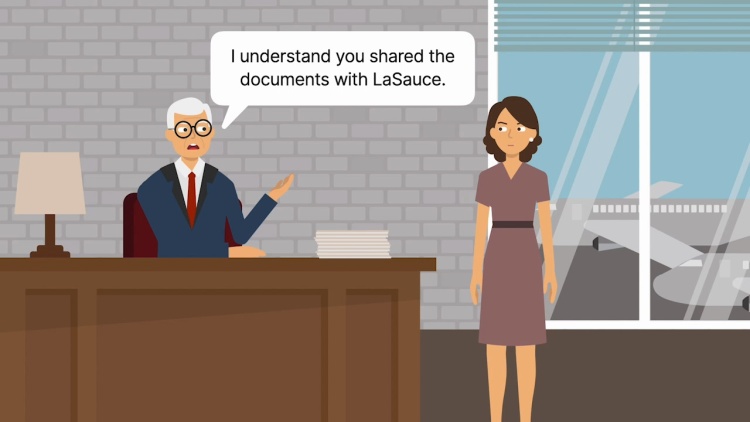Laughlin v. Metropolitan Washington Airports Authority
United States Court of Appeals for the Fourth Circuit
149 F.3d 253 (1998)
- Written by Nan Futrell, JD
Facts
In April 1994, Kathy LaSauce, an employee of Metropolitan Washington Airports Authority (MWAA) (defendant) informed airport manager Augustus Melton of a retaliation charge against LaSauce’s MWAA supervisor, William Rankin. Melton attempted to resolve the complaint informally, but LaSauce ultimately filed a formal complaint and resigned. While investigating the complaint, Melton drafted an informal letter to Rankin, warning Rankin about the alleged inappropriate retaliation against LaSauce. The letter, dated September 8, 1994, was never formalized, signed, or sent to Rankin; it remained on Melton’s desk. Around the same time, Rankin announced he had accepted a job at a different airport and resigned. Laughlin (plaintiff), Melton’s secretary, found the letter to Rankin on Melton’s desk on September 29, 1994. Laughlin concluded Melton had tried to cover up Rankin’s actions and withheld the letter to interfere with LaSauce’s ability to prove retaliation in a future lawsuit. Laughlin removed the letter and several other documents from Melton’s desk, photocopied them, and sent copies to LaSauce. Laughlin’s actions were uncovered in 1996, during LaSauce’s civil suit proceedings. Laughlin was fired for removing and releasing confidential documents without consent. Laughlin sued MWAA, alleging unlawful retaliation under Title VII of the Civil Rights Act of 1964 (Title VII), 42 U.S.C. § 2000e et seq. The district court granted summary judgment to MWAA, concluding that deceitful conduct is presumptively unprotected under Title VII. Laughlin appealed.
Rule of Law
Issue
Holding and Reasoning (Williams, J.)
What to do next…
Here's why 899,000 law students have relied on our case briefs:
- Written by law professors and practitioners, not other law students. 47,000 briefs, keyed to 994 casebooks. Top-notch customer support.
- The right amount of information, includes the facts, issues, rule of law, holding and reasoning, and any concurrences and dissents.
- Access in your classes, works on your mobile and tablet. Massive library of related video lessons and high quality multiple-choice questions.
- Easy to use, uniform format for every case brief. Written in plain English, not in legalese. Our briefs summarize and simplify; they don’t just repeat the court’s language.





